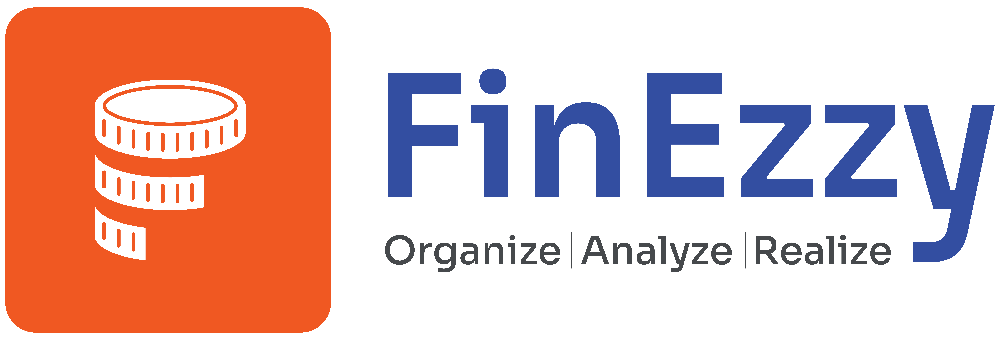Navigating the world of loans can be a bit tricky, especially when there are so many options available. Have you ever found yourself in need of some extra cash but unsure of the best way to get it? You’re not alone! Many people are exploring different ways to secure loans that are both quick and convenient. In this blog post, we’re going to take a close look at two popular options: Loans Against Mutual Funds (LAMF) and unsecured personal loans.
What is a Loan Against Mutual Fund?
Loan Against Mutual Fund (LAMF) is becoming a popular choice for many individuals seeking quick and flexible financing options. But what exactly are they? In simple terms, LAMF allows you to borrow money by pledging your mutual fund units as security. It’s a convenient option, especially when you need funds urgently but don’t want to sell your mutual fund investments. Learn the fundamentals of Loan Against Mutual Funds (LAMF) and its advantages in our guide. If you’re new to this, our blog post “Understanding the Basics of LAMF and Its Benefits” offers valuable information to get started.
What Are Unsecured Personal Loans?
Unsecured personal loans are provided by banks and other financial institutions without the need for collateral. Borrowers are not required to pledge an asset, making these loans a common method for obtaining financial assistance, often available at higher interest rates due to the increased risk to lenders.
Types of Unsecured Personal Loans:
- Credit Cards: Credit cards are a common type of unsecured loan, offering a credit line that allows repeated borrowing up to a certain limit.
- Personal Loans: These are fixed-amount, fixed-term loans that are repaid in regular monthly installments, commonly used for personal purchases.
- Student Loans: These loans are offered to students for educational expenses, and repayment typically begins after the education is complete.
- Payday Loans: Short-term, high-interest loans that are expected to be repaid by the borrower’s next payday.
Loan Against Mutual Fund VS Unsecured Personal Loans
We look at several key factors to understand the differences between Loan Against Mutual Fund (LAMF) and Unsecured Personal Loans. These factors are important because they affect your experience and the long-term effects of the loan. Let’s explore these factors to better understand how LAMF and unsecured personal loans compare.
- Flexibility
LAMF or Loan Against Mutual Funds are known for their flexibility. Borrowers appreciate these loans because they can easily adjust the repayment terms or borrow additional amounts if needed. This adaptability ensures that borrowers are not stuck with rigid terms or conditions.
Unsecured personal loans, on the other hand, are less flexible. The terms are set, and borrowers must adhere to them. This can be limiting, especially when unexpected financial changes occur.
- Interest Rates
Unsecured personal loans often come with higher interest rates, making the repayment process more challenging. The accumulating interest can be a significant burden.
In contrast, LAMF offers lower interest rates, leading to smaller repayment amounts and less financial strain. Borrowers find it easier and more comfortable to manage their loans.
- Approval Time
Getting approval for an unsecured personal loan can take time due to multiple checks and paperwork, leading to a waiting period that can be inconvenient for those in urgent need of funds.
LAMF speeds up this process. The approval is quick, the paperwork is minimal, and borrowers can access the funds they need without unnecessary delays.
- Impact on Credit Score
Unsecured personal loans have a direct and often strict impact on the credit score. Every missed or delayed payment is recorded and affects the borrower’s credit history. There is little room for errors, and borrowers need to be careful to maintain a positive credit score.
LAMF, however, offers more manageable repayment options and lower interest rates. This reduces the likelihood of missed or delayed payments and supports the maintenance of a good credit score.
- Assessing Risk and Security
Unsecured personal loans are not backed by collateral, leading to higher interest rates as lenders seek to mitigate their risk.
In the case of LAMF, the mutual funds act as collateral. This arrangement assures both borrowers and lenders, fostering trust and security.
- Eligibility
For LAMF or also referred to as Loan Against Mutual Funds, borrowers can avail loans without stringent requirements like a high credit score or income proof.
In contrast, unsecured personal loans often have stricter eligibility criteria, including a good credit score and a steady income, making the process more complex and potentially limiting their accessibility for some borrowers.
Why Choose Loan Against Mutual Fund Over Unsecured Personal Loan?
Navigating through the detailed comparison, LAMF stands out as a powerful tool for financial growth and freedom, offering flexibility, lower interest rates, and quick approval times.
Choosing between LAMF and unsecured personal loans is about selecting a financial partner that aligns with your needs and aspirations. With LAMF, you gain a partner committed to helping you navigate your financial journey with ease, clarity, and confidence.
Partnering with FinEzzy can make the decision much easier. FinEzzy offers specially designed LAMF that are easy to understand, flexible, and can be adjusted to fit individual needs and goals. FinEzzy is more than just a financial institution; it’s a partner in your financial journey. With their help, borrowing money becomes less about dealing with rigid terms and more about finding solutions that work for you. With FinEzzy, you’re not just getting a loan; you’re gaining a partner committed to helping you navigate your financial journey with ease, clarity, and confidence.
Frequently Asked Questions (FAQs)
The adaptability of Loan Against Mutual Funds allows borrowers to tailor their loans according to their specific needs, ensuring a personalized financial planning experience.
Loan Against Mutual Funds are known for their transparency, with clearly outlined terms and conditions, ensuring borrowers are not blindsided by hidden costs.
Interest rates for Loan Against Mutual Funds are generally lower, making them a cost-effective option for borrowers seeking financial flexibility.
Your mutual fund units serve as collateral, offering a secured loan option while allowing your investment to continue growing.
Yes, since your mutual fund units are used as collateral, it’s possible to secure a loan even with a less-than-perfect credit score.





